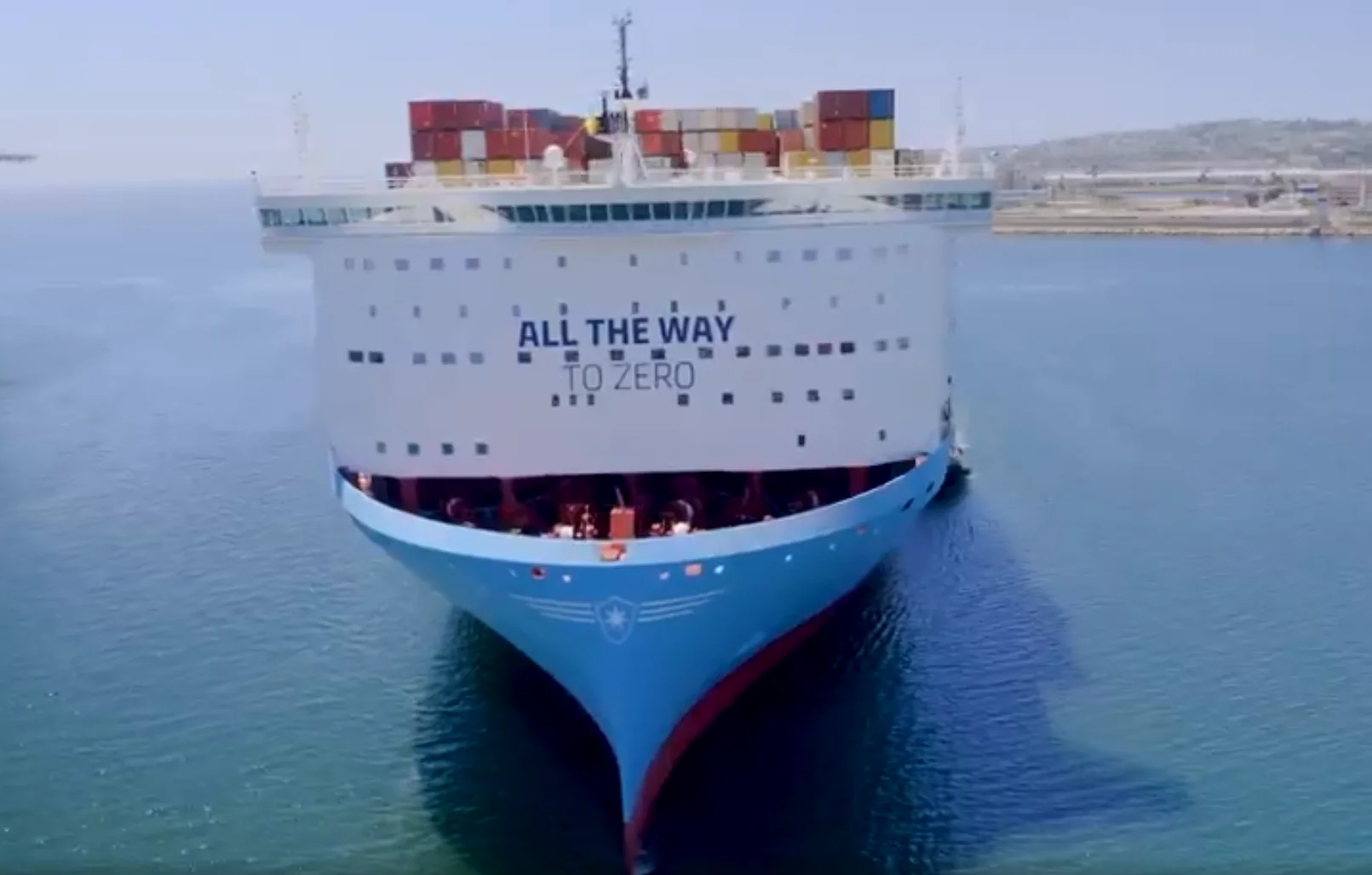
Maersk completes landmark Methanol-Powered Fleet : A Global Milestone in Green Shipping
COPENHAGEN : Moving toward decarbonizing ocean transport, A.P. Moller – Maersk has announced the completion of the world’s first large dual-fuel methanol-powered container vessel fleet, a project that spans multiple continents, industrial partners, and sustainability milestones.
The global logistics and container shipping giant has now placed into operation a series of methanol-enabled container ships, each launched with deliberate symbolism in ports from Aarhus to Yokohama, including key hubs like Los Angeles, Rotterdam, Singapore, and Mumbai. These vessels, which can operate on either conventional fuels or green methanol, represent a tangible shift in the maritime industry’s approach to emissions reduction.
Developed in collaboration with HD Hyundai Heavy Industries and MAN Energy Solutions, and supported by a broad base of commercial partners including Nestlé, Temasek, Nike, Vestas, Nissan Motor Corporation, and Primark, Maersk’s dual-fuel fleet demonstrates a combined push for innovation and sustainability across industries.
A Fleet That Signals a Shift
Rather than opting for gradual retrofits, Maersk committed to building a full fleet of methanol-ready vessels at scale. These ships aren’t prototypes—they’re operational assets now deployed across key global trade lanes. The project reflects a growing belief among logistics leaders that decarbonization isn’t a future aspiration—it’s a current requirement.
The fleet consists of over a dozen large ocean-going vessels equipped with dual-fuel engines capable of running on green methanol, a bio-based alternative with far lower lifecycle emissions than traditional bunker fuels. While methanol is not yet widely available at scale, Maersk has coordinated with fuel producers and port authorities to ensure bunkering is possible at strategic locations.
Each ship naming ceremony was carefully planned not just as a brand celebration but as a statement of intent. With events in Felixstowe, Shanghai, Ulsan, and more, the vessels were introduced with global visibility, underscoring the scale and momentum behind the initiative.
Why Methanol?
Green methanol is gaining ground as a viable alternative fuel for long-haul maritime transport. It’s easier to store and handle than liquefied natural gas and doesn’t require cryogenic temperatures. Methanol can also be produced using renewable feedstocks such as biomass or through CO₂ capture combined with hydrogen derived from renewable electricity—known as e-methanol.
Maersk‘s shift toward methanol aligns with its public goal of achieving net zero greenhouse gas emissions by 2040. While shipping accounts for approximately 3% of global CO₂ emissions, it has traditionally been one of the most difficult sectors to decarbonize due to the energy intensity of ocean freight and limited availability of scalable alternatives.
Industrial Collaboration Key to Progress
The breadth of stakeholders involved in this initiative signals a broader trend toward industry-wide collaboration. Companies like Nike and Nestlé, which rely heavily on containerized shipping, are increasingly engaging in supply chain decarbonization at the transport level. Their participation reflects growing pressure from consumers and regulators for more transparency and lower emissions across global value chains.
Beyond the cargo owners, the project required deep engineering collaboration. HD Hyundai Heavy Industries designed and built the vessels, while MAN Energy Solutions developed the dual-fuel engines—technology that is still in the early stages of global adoption.
The role of crew training and onboard systems optimization cannot be overstated. Crews underwent specialized training to manage methanol operations safely, while the vessels themselves are equipped with advanced emissions monitoring systems to ensure performance under various fuel conditions.
A Fleet, But Not the Finish Line
While this initial methanol fleet is now fully operational, Maersk has made it clear this is just one chapter in a larger decarbonization strategy. With plans to scale its use of green fuels and advocate for broader port infrastructure changes, the company is positioning itself as a key player in shaping maritime energy policy.
The broader implication? Shipping companies, freight forwarders, and cargo owners alike will need to engage more actively in alternative fuel strategies—either by securing green capacity, co-investing in supply chains, or rethinking routing and modal strategies in the years ahead.
The vessels may now be afloat, but the transition continues—one port, one shipment, and one partnership at a time.

